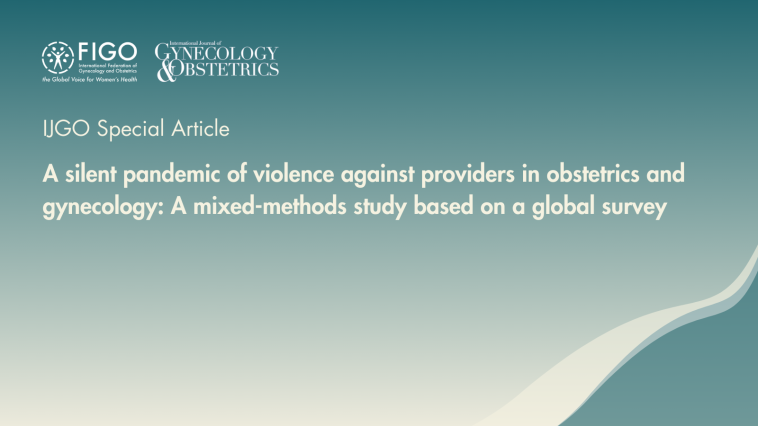Global survey reveals "silent pandemic" of violence against OBGYN healthcare providers

A groundbreaking global survey conducted by the FIGO Committee on Women Facing Crises has unveiled alarming rates of workplace violence (WPV) against obstetrics and gynaecology providers worldwide, with three-quarters of respondents reporting experiences of violence during their careers.
The study, published in the International Journal of Gynecology & Obstetrics, collected responses from 1,016 healthcare providers across 77 countries between October 2023 and January 2024. The findings paint a concerning picture of widespread abuse that often goes unreported and unsupported.
Key findings from the survey include:
- 47.4% of affected providers reported impacts on their psychological health
- 29.1% experienced decreased job satisfaction
- Primary triggers included staff shortages (38.8%), lack of security (37.5%), and long waiting times (37.3%)
The research highlights that violence often stems from a complex interplay between unmet patient expectations and insufficient healthcare resources. This creates a challenging environment where providers must navigate both clinical responsibilities and potential security threats.
"Violence against healthcare professionals has reached pandemic levels, with this study revealing an alarming prevalence. It's likely that you, or someone close to you, has been affected. We must break this cycle. No healthcare provider should have to choose between delivering care and fearing for their own safety."
- Dr Atziri Ramirez, chair of the Committee on Women Facing Crises: Human Rights, Refugees and Violence Against Women
FIGO calls for immediate action to address this silent pandemic of violence, including:
- Implementation of robust security measures in healthcare facilities
- Development of comprehensive support systems for affected providers
- Investment in adequate staffing and resources
- Creation of clear protocols for handling violent incidents
Healthcare providers should be able to focus on delivering care without fear of violence or abuse. FIGO remains committed to advocating for the safety and well-being of OBGYN providers worldwide.
For more information about this study, please refer to the full article in IJGO.